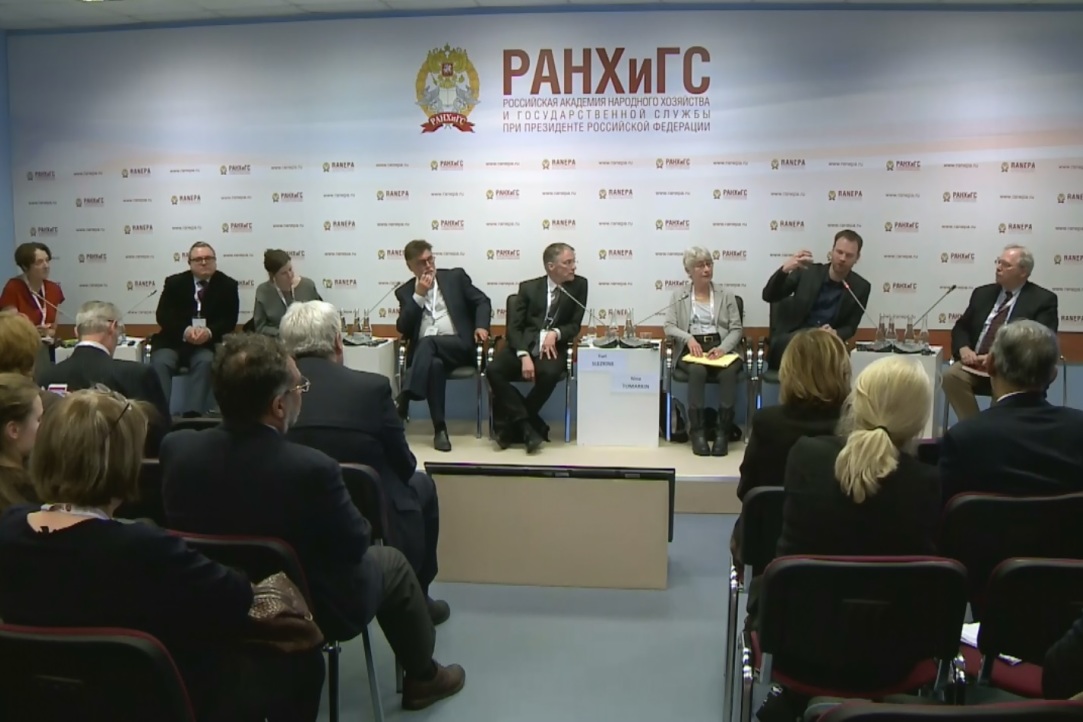Faculty of Urban and Regional Development at the Gaidar Forum 2019

On 15-17 January The Gaidar Forum 2019 “Russia and the World: National Development Goals and Global Trends” took place at the Russian Presidential Academy of National Economy and Public Administration (RANEPA).
Professor Carol Scott Leonard, Leading Research Fellow at the Institute of Regional Studies and Urban Planning of the HSE Faculty of Urban and Regional Development, Director of the Center for Russian Studies at RANEPA and Emeritus Fellow of St Antony’s College Oxford, organized and moderated an expert session at this year’s Gaidar Forum on “The Construction of Memory: Generations and Russia’s Past and Present”. Researchers from different fields – history, sociology and urban studies – came together to discuss a topic that has so far received relatively little attention in Russian academia: the role of generations in Russian society and economy.
Yuri Slezkine, Professor of History at the University of California, Berkeley, viewed the history of Soviet Union as a history of three generations, which were united in particular ways, for example through their shared beliefs and experiences, or through their origins.
Sergey Zuev, Dean of the School of Public Policy at RANEPA, discussed how higher education system changed over last 25 years in Russia. He argued that education is a part of culture and therefore presents an important mechanism of passing on knowledge from one generation to another.
Photo by © Gaidar Forum 2019
Professor Nina Tumarkin, Wellesley College, illuminated the multiple memories of the Soviet experience of World War II from the 1960s until today, and showed how they are linked to different generations.
Greg Yudin, Associate Professor at the HSE Faculty of Social Sciences and Academic Director in the Political Philosophy Program at the Moscow School of Social and Economic Sciences, pointed to Karl Mannheim’s understanding of generations, which includes shared experiences, emotions and a common vision of history. Prof. Yudin mentioned the issues of memory-making in Russia, distinguishing two forms: governmental and personal/family memory-making.
Photo by © Gaidar Forum 2019
Daniela Zupan, post-doctoral research fellow at the HSE Institute of Regional Studies and Urban Planning, in her talk demonstrated the role of actors and generations in paradigm shifts in urban planning and design in Germany and Russia.
Michael Anipkin, PhD, Director of Alexander Consultancy Limited, drew a detailed portrait of the last Soviet generation, which he calls a ‘lost generation’. He argued that a lack of generational rotation in the party hierarchies during the 1970s affected the crisis within the Communist Party.
The last talk by Thomas Remington, Professor of Political Science at Emory University, was dedicated to the interplay and different forms of oligarchy and inequality in Russia, China and the US.
Daniela Zupan
Carol Scott Leonard